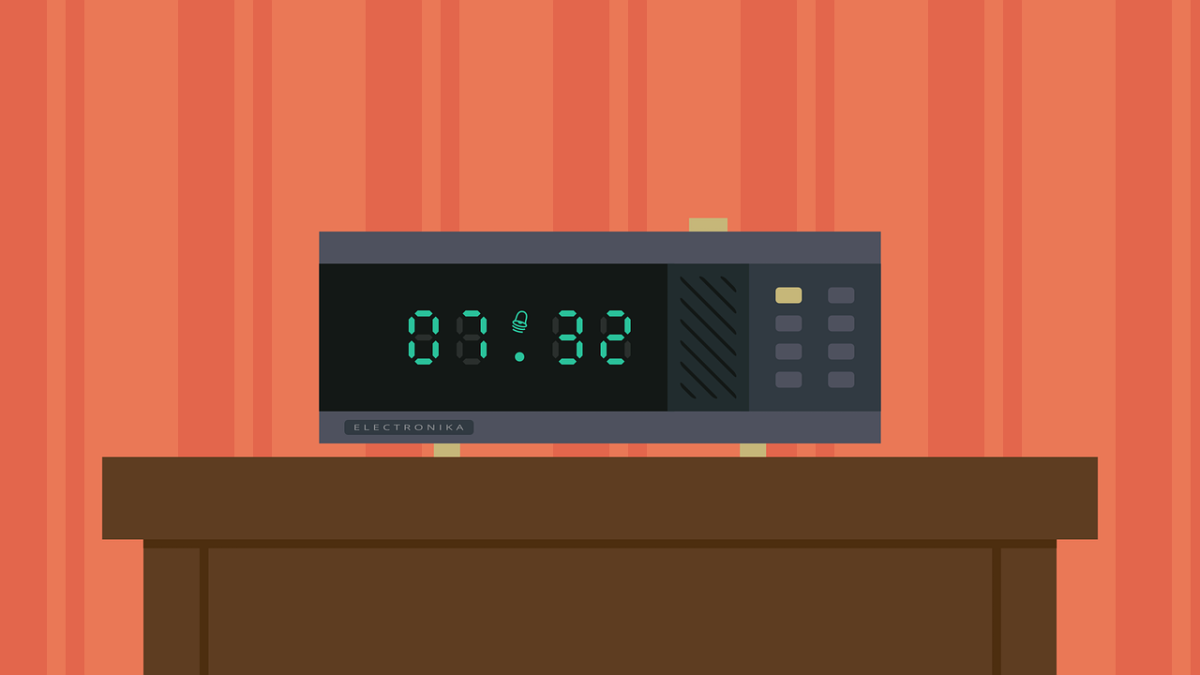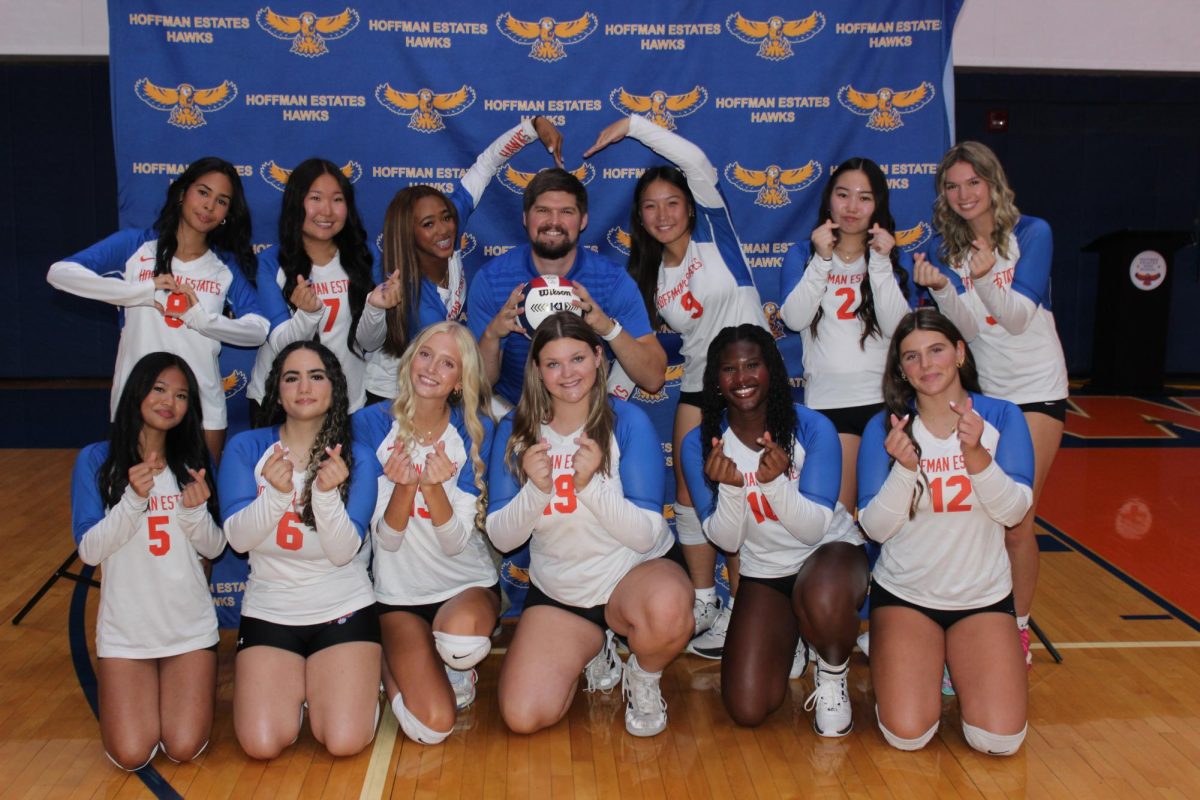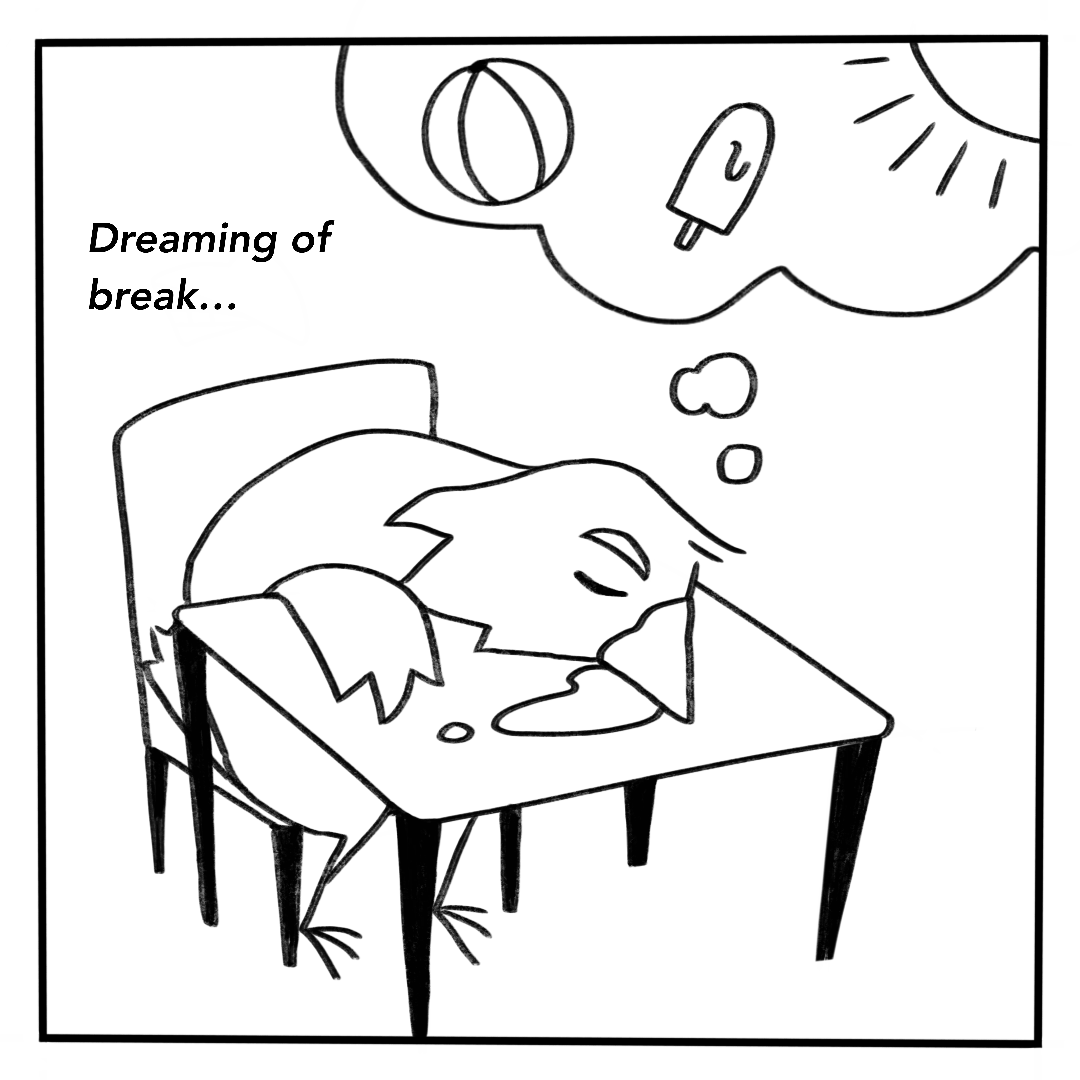Walking into any high school you’ll see the high schooler essentials: eyebags, hoodies, and slides. These things aren’t found because these students are disheveled and lazy; it is because they are exhausted.
“When I come to school not feeling my best it’s because I’m tired,” said Amina Cuturic, sophomore.
Students need sleep. When students aren’t getting enough sleep it impacts their academic performance. “I notice when my students are tired. They often put their heads down and are disengaged in class,” said Delaina Heracklis, English department.
According to the American Psychological Association, adolescents need nine hours of sleep for optimal development and critical thinking skills.
Even though it is common knowledge that teenagers need copious amounts of sleep, it isn’t always achievable.
This is seen through Kailey Whalen, a sophomore. Her first main task of the day is to go to school. Class at Hoffman Estates runs from 7:30 a.m. to 2:45 p.m. She then moves onto her second task of the day: managing boys volleyball until 4 p.m.
She then hurries to her own club volleyball practice, which lasts from 4:45 p.m. to 7:45 p.m.
Eventually she returns home at 8:20 p.m., where she immediately works on her homework, usually for three to four hours a night. Whalen finishes her night with a shower and the rest of her hygiene routine, eventually going to sleep around 1 a.m. every night. If Whalen needs to wake up at 5:30 a.m. to make the 7:30 a.m. start time, that means she only gets four hours and 30 minutes of sleep a night, which is half of the recommended nine hours.
Whalen is not an exception but an expectation. HEHS students are heavily involved in activities both in and out of school; therefore, it is truly hard to find the time to get the proper amount of sleep.
One of the many reasons that this is such a common occurrence is due to Hoffman’s school time. While there are many reasons why the 7:30 start time is beneficial and needed, it is early.
Barrington High School, a school found in the MSL conference, changed their start times in 2019 to 8:30 a.m.
The benefits of this solution are vast, but the two main benefits are students can get more sleep, and they would have more time to themselves in the morning. Heracklis claims that more sleep leads to improved athletic performance, as a well-rested athlete is more likely to be able to give it their all in practice and competitions.
Nevertheless, a later start time may result in undisciplined teenagers. “As an adult who works with other future adults, it makes sense to create a schedule that prepares (students) for a regimented schedule that requires discipline,” said Heracklis.





















